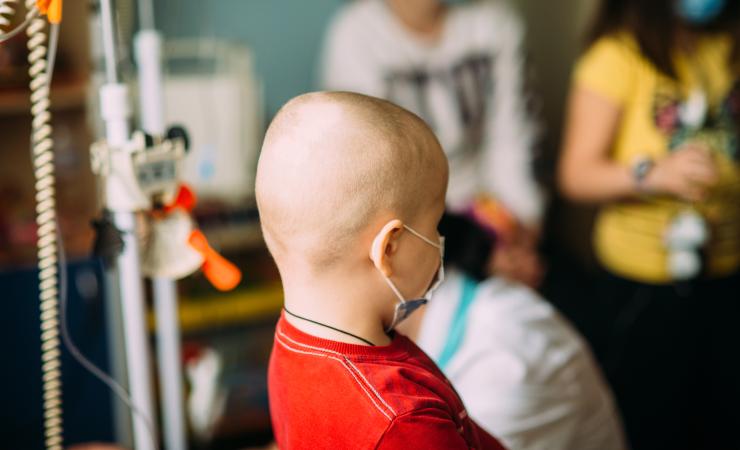Across the world childhood cancer remains rare, although around 15 000 children and adolescents are diagnosed with cancer in Europe each year. Sadly, around one in four of these patients cannot be cured with existing treatments and do not survive. Roughly two-thirds of those who do survive cancer in childhood will experience long-term side effects because of their treatment.
Although cancer treatments can take a toll at any stage of life, oncology experts say that paediatric oncology lacks the same repertoire of modern treatment options as in adult oncology.
A new non-profit company is now hoping to help paediatric oncology treatments catch up to those available to adults. ITCC-P4 gGmbH is the world’s first and only company of its kind to provide fully characterised, laboratory-based paediatric tumour models for researchers and companies to test potential cancer therapies.
An Innovative Medicines Initiative project spin-off
ITCC-P4 gGmbH is a spin-off from the Innovative Medicines Innovative (IMI) project ITCC-P4, which aims to develop patient-specific preclinical laboratory models for the most common high-risk childhood cancers. Since 2017 the project has developed a platform of over 400 patient-derived models, based on cells and tissues obtained from patients covering more than 20 common childhood cancers such as acute lymphoblastic leukaemia, neuroblastoma, high grade glioma, and osteosarcoma.
The spin-off company is making all of these tools and models available to pharmaceutical companies and academic research institutes by collaborating with three research organisations, which makes it easier for them to develop new paediatric cancer therapies and prioritise their pipeline drugs for specific applications in children.
A vital resource for childhood cancer researchers
One of the models being developed by the project is what’s called ‘patient-derived xenograft models’ for paediatric tumours. This involves taking tumour cells and placing them in lab mice. Compared to test plates, this provides a more realistic environment to test anti-cancer drugs. These models allow researchers to explore the biology of paediatric cancers, test potential drugs, and identify patient sub-groups in mice models before being evaluated in children.
Another tool the project developed reviews studies on how relevant certain drug targets are for specific paediatric cancer types, and thus checks if drugs developed in adults could have the same effect on paediatric cancers. Researchers can therefore prioritise which existing drugs could work on paediatric tumours.
The project’s research means the company can provide these tests to help researchers prioritise which anticancer compounds should be developed to treat paediatric cancers. The data from these tests will also provide key information during the regulatory approval process.
Regulations for approving cancer drugs are already in place in the USA and being reformed in the EU. Soon, all cancer drugs receiving approval must also be tested for treating childhood cancer if the way it works is relevant to childhood tumours, meaning the time is ripe for a new era of childhood cancer research.
Conect4children project launches non-profit for paediatric trials
Complementing the work of ITCC-P4 and its spin-off is the conect4children Stichting, a Dutch non-profit organisation that has its roots in IMI project conect4children. Conect4children launched in 2018 to set up high-quality paediatric clinical trials for all disease areas and all phases of the clinical drug development process. It has created a pan-European clinical trial network to provide expert advice on all aspects of paediatric clinical trial design. The network also provides support for clinical trial conduct, education and training for researchers on paediatric drug development, and a platform for paediatric multistakeholder meetings.
ITCC-P4 and conect4children are supported by the Innovative Medicines Initiative, a partnership between the European Union and the European pharmaceutical industry.
